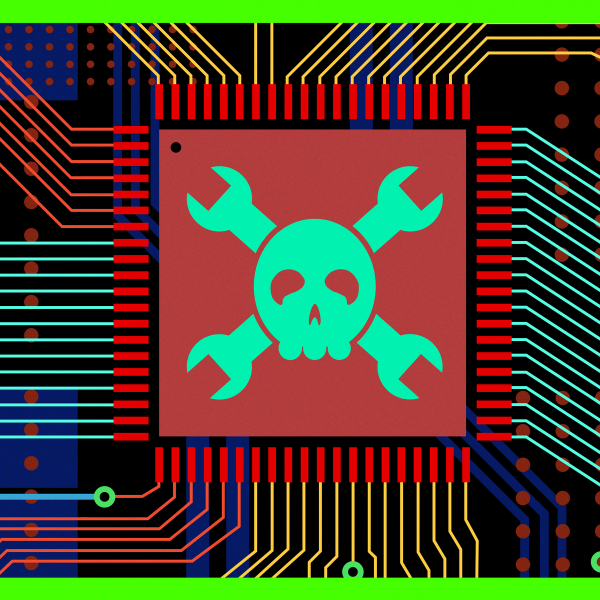Another week’s news, another single board computer aimed at Internet of Things applications is launched. This time it’s Samsung’s Artik 5, a platform they’ve been talking about for a while now but which you can now buy as a dev board from Digi-Key for $99.99. For that you get Wi-Fi, Bluetooth and Zigbee connectivity, a dual-core ARM Cortex A7 running at 1GHz, 512MB of memory, and 4GB of eMMC storage. There are the usual plethora of interfaces: GPIO, I2C, SPI, UART, SDIO, USB 2.0, JTAG, and analogue.
The single board computer marketplace is starting to look rather crowded, and with so many competitors to choose from at more reasonable prices you might ask yourself why the ARTIK could be of interest to a maker. And given that Samsung are positioning it in their literature on its increased security for use in commercial applications such as IoT hubs, IP cameras and industrial and commercial lighting systems, you’d probably be on to something. If you were to make a very rough analogy with the Raspberry Pi range this has more in common with the Compute Module when it comes to intended marketplace than it does with the Pi Zero.
One answer to that question though could be that it is one of the first devices to support the Thread networking protocol for IoT devices. Thread is a collaboration between Google and a range of other interested parties that has been designed to deliver reliable and secure mesh networking for IoT devices in connected homes. As with all new connectivity protocols only time will tell whether Thread is the Next Big Thing, but it is interesting to note in this board nevertheless.
The ARTIK hasn’t made many waves as yet, though we covered the story when it was announced last year. It is worth mentioning that the ARTIK 5 is only the first of three platforms, the ARTIK 1 will be a tiny board with Bluetooth LE aimed at portable and wearable applications while the ARTIK 10 will be an octo-core powerhouse aimed at mulitmedia processing and network storage applications.
















The board from Digikey isn’t quite the one in the Samsung documentation. The DK one is labelled Dev Board5, and its closer to the Artik 10 dev board, but using a artik 5 module than the artik 5 shown above. The module itself is correct. I couldn’t find any docs on the DK board yet.
Is there any documentation available about threads if you are not a member of the working group?
Fedora out of the box, interesting choice.
Indeed.
Sounds like the Artik 10 is going to end up just being an expensive ODROID-XU4 (Octa-core Samsung Exynos SoC, lots of RAM — for an ARM dev board, anyway — and built-in gigabit ethernet with a bunch of GPIO/SPI/I2C/I2S/etc pins to play with.
I’ve always liked Hardkernel boards, and they have a great community.
Look at the connector and switch placement. Horrible..
Where you see a failure, others might see an opportunity (hopefully). This is a dev board, not necessarily an ready-to-use IoT core itself.
OPERATING TEMPERATURE TBD
I stopped reading after that.
Seriously, this kind of board need to operate from at least from -40°C to +85°C to find it way in industrial applications.
One of the most popular industrial PLCs has an operating range of 0-60C (http://www.ab.com/en/epub/catalogs/12762/2181376/2416247/360807/1837516/print.html) . Extended temperature range is nice for specific applications, but it is by no means necessary in order to find it’s way into industrial applications.
Where’s the hack? I see the advert for a product, but no hack.
Advert-a-day
While I do realize that hackaday is supposed to me about making things and cool hacks, I don’t mind the occasional product release information as it keeps me informed of what’s out there, so long as its not subliminal ‘native advertising’. https://en.wikipedia.org/wiki/Native_advertising
It’s hack-a-day, no promise implied that every blog entry documents a hack, just one a day. I think it’s Ok, if there’s a sponsored article here and there, as long as it is on-topic, i.e. it might enable or encourage someone to create a noteworthy hack.
In my mind, sponsored articles are also fine so long as they come with a disclaimer that informs the reader that this is indeed a sponsored article.
But even if it doesn’t its not the end of the world i guess. Besides I’m old enough and paranoid enough to be able to spot sponsored articles nowadays.
I can say with complete confidence that this was not a sponsored article. No contact was had with Samsung beyond reading the info on their web site. It is a new platform with relevance to the world of makers though, and for that reason it should be of interest to Hackaday readers.
I like the DragonBoard 410c. For $75 bucks your getting integrated WiFi, Bluetooth, 8GB of Flash, 1GB RAM and 1.2GHz CortexA53 Quadcores. In addition to all the usual suspects …I2C, UART, SPI, GPIO e.t.c. It is supported by Linaro and ARM and follows the 96boards.org standards and basically runs the latest Linux Kernel 4.4.
I also like the ODroid-C0 for IOT stuff (Just received two yesterday). It doesn’t have quite the level of integration of the Dragonboard 410c but costs $25 and comes with 1GB RAM, Quad core Cortex A5 running at 1.5GHz in addition to the usual suspects. It comes with almost no connectors so you’ll have to purchase a USB connector (dual or single) through which you can attach USB to Ethernet or USB WiFi connectors. For the money it’s pretty solid, especially when used headless with node.js or python.
I’ve bought quite a few dev boards because I saw a post on HackaDay, which is why I sent the tip in. So blame me if you don’t like it.
It would be nice if HaD had a page which just listed dev board announcements and hacks. I’d not heard of the DragonBoard.
No need to blame anyone. I like articles about new products. Just don’ like sponsored articles that are not advertised as such (usually articles about cough cough microchip products) . But this is just a preference of mine. I also don’t feel entitled to anything. I like hackaday a lot regardless of anything. And besides it’s not like I’m perfect or anything either.
“It would be nice if HaD had a page which just listed dev board announcements and hacks.”
A less than ideal place for an Announcements page (because HaD seems to be embarrassed by existence) is the
HaD Forums
http://forums.hackaday.com/
I have ordered an Artik dev board which should arrive today. My main interest is because it includes a secure element which enables some interesting possibilities. From an individual hacker/maker POV there are many better alternatives. My current favorite is the CHiP $9 computer which does an amazing job and has quite impressive support for such a cheap board. I have mine acting as a hub for a number of ESP8266 IOT objects.
I’ve got an ARTIK 10. Received it as part of their “Makers Against Drought Challenge” and it is indeed a powerhouse.
Havent done much with it, and am currently sifting through the documentation. There’s not much I can comment on about it, due to an agreement signed to receive the board, but there is a lot of ‘technical’ in the docs, without much ‘practical.’ It seems they wanted to make an all inclusive board, and have the world write its software…Still not sure how I feel about it, but it certainly can be a capable piece of kit in the correct hands, I’m sure. Here’s hoping I can be those ‘correct hands’ =P
Not that related to the post, but I wish they would come up with better names for tech. Calling it ‘Thread’ is going to make it a pain to search for. It’s like when they named Web Services, which is not the same as services on the web, although it is a technology for services on the web. Nightmare when trying to Google for info on it.
Yeah, threading/threads already has a meaning, for concurrent programming.
But, of course, programming already has command overloads, so, why not another (sarcasm).